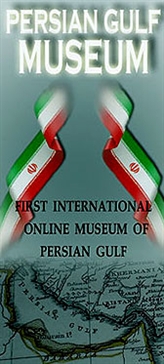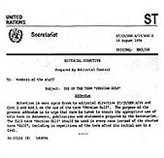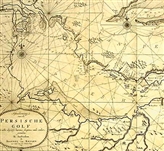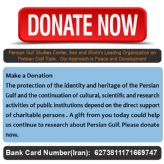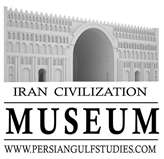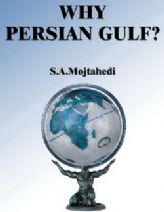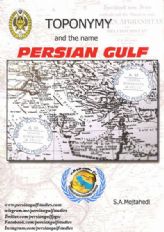H. E. President Barak Obama
Date: 3/9/2014 11:15:02 AM
H. E. President Barak Hussein Obama
The White House
Washington July 1st, 2012
Your Excellency, news media carried on Wednesday June 28, 2012 the story of your joint statement with Sheikh Mohammad bin Zayed, Heir Apparent of the Al-Nahyan tribe of Abu Dhabi, not the Crown Prince of the United Arab Emirates; a post that is not recognized by the UAE Constitution.
The Sheikh you have met represents one of the most brutal dictatorships in the region of the Persian Gulf, bar your other tworegional friends and allies,Saudi Arabia and Qatar. The United Arab Emirates under the Al-Nahyan pretenders is but a terrorist-sponsoring-state that is responsible at least in part for the creation of the Taleban and Al-Qaeda terrorist groups and is responsible, in part, for the continuation of financing their activities that have done away with the United States’ cherished road-map for realization of American security in Afghanistan, Pakistan and Central Asia.
Sir, in that joint communique you seem to have expressed support for the UAE demand for negotiations with Iran to settle their illegal claims of ownership of the three islands of Greater Tunb, Lesser Tunb and Abu Musa in the Persian Gulf, owned and administered by Iran according to the 1971 Memorandum of Understanding signed by Iran on the one hand, and by the Emirate of Sharjah on the other, under the supervision of British Government, then responsible for the emirates’ foreign relations and territorial defence. This expression of White House’ support for the UAE pretences of wanting to negotiate with Iran over an issue settled 42 years ago through negotiation can only represent White House’s ignorance of the fact that the said issue had been settled through negotiations in November 1971 and when the matter was being discussed at the UN Security Council on 9th December that year as a result of a complaint by Saddam Hussein and Qaddafi and two others from the Arab League, your country’s permanent representative at the UN greeted the signing of the said MoU and endorsed statement by permanent representative of the United Kingdom at the United Nations declaring that the MoU arranged and signed between his country and Iran on these islands constituted a model arrangement for the settlement of similar territorial issues elsewhere in the world (1).
Sir, I assure you that the United Arab Emirates under the leadership of the Al-Nahyan does not want negotiations with Iran, but by arranging for such a joint communique with you, the UAE only wants to internationalize its illegal claims on these islands.Otherwise, since the start of their claims in 1992, Iran attempted on several occasions, to negotiate with them without success. In the same year the then Iranian Foreign MinisterVelayati visited Abu Dhabi twice in the hope of negotiating the harmful nature of the way they propagate their claims but no one in Abu Dhabi met him. Later in 1993Iran’s Foreign MinisterKharrazi went to Abu Dhabi for the purpose of talking with them, and he was similarly ignored by the UAE Al-Nahyan leaders in Abu Dhabi. On a fifth Occasion the Emirate of Qatar intervened and arranged for a meeting between the two sides in Doha. The meeting took place on November 18, 1995to negotiate the issue. Immediately after the preliminary session and introduction of the two delegations, the UAE representatives announced to the news media that negotiations had collapsed because of Iranian intransigency in those talks, without even the actual meeting having had commenced (2).
Sir; The United Arab Emirates has since start of their illegal claims in 1992 on these islands, been trying to politicise and internationalise this claim with great propaganda agitation which can effectively threaten international peace and security. Hence, all countries of the world (except for Gadhafi’s Libya and Saddam Hussein’s Iraq, but including the government of the United States) have practiced impartialityvis-à-vis UAE's territorial agitation against Iran. It is against this background that speaking of US support for UAE designs for solving the "disputes" with Iran through negotiations, is an obvious depart from the position of impartiality on the part of the United States. In other word,considering that these islands belong to the people of Iran, and they are not the private property of the Islamic Republic with which your government is at an unreasonable odds over the issue of Iranian nuclear energy program, the issue of a communiqué by US presidenttogether with the Heir Apparent of the Al-Nahyan tribe of Abu Dhabi will amount to no less than US interference against territorial integrity of Iran which only will register your un-called for expression of animosity against the people of Iranand this, I assure you Sir, meets our peoples strongest objection.
Your Excellency, many times in this letter I referred to the United Arab Emirates' claims on the Iranian islands of Tunbs and Abu Musa as Abu- Dhabi's "illegal claims". I assure you that I have not used the term lightly and that there are good arguments that will demonstrate the illegal and or illegitimate nature of the claims fanatically pursued by the Al-Nahyan leaders of the United ArabEmirates.Their claims on Iranian territories are illegal because:
A- Geographical evidence:
1- The two Tunb islands are situated in the northern half of the Persian Gulf well within Iranian side of the sea. By the Anglo-Iranian general understanding of mid-1960s the islands situated in the northern half of the Persian Gulf belong to Iran and those in the southern half belong to Arabs. Hence, Iran decided in 1970 to withdraw claims on Bahrain islands (3) and Britain decided to relinquish unsustainable claims to Tunb islands in 1971.
2- Abu Musa Island is situated on the median line of the Persian Gulf half way between Iran and Sharjah and by the power of the 1971 MoU signed between her and the Iranian government under the auspices of the UK Foreign Office, sovereignty over it is shared by the two.
B- Historical evidence:
1- The three islands in question, like all other islands in the northern half of the Persian Gulf have always belonged to Iran.
2- In 1902 the British Foreign Office decided in a secret meeting to occupy these islands for strategic reasons (4). The islands of Greater Tunb and Abu Musa, together with Sirri Island also belonging to Iran, were occupied by the British in the name of the Ruler of the Emirate of Sharjah (5). Lesser Tunb was occupied in 1908 (same documents).
3- The Iranians attempted to recover their islands ever since, succeeding in causing interruption in their occupation on several occasions (6).
4- In November 1971 the two sides succeeded in solving the disputes by signing Iran-Sharjah MoU, whereby shared administrative rights over areas of that island designated to each side was enforced, while Iranian sovereignty has been recognized (7).
C- Legal evidences:
1- Members of the Arab League, including Iraq, Libya, Algeria, Kuwait, South Yemen, and the United Arab Emirates complained against Iran to the UN Security Council in December 1971 similarly arguing without proof that Iran had occupied the said islands. The Security Council met on December 9, 1971 and after full deliberation decided, without objection, to let the case to rest (8). The question now is that if the UNSC decided at the time of the incident that there was no case for complaint, how Arab League can prove that an event taken place 36 years ago and did not cause concern for peace of the region at the time, causes concern for peace of the region now, and how can it expect the same international body to ignore all relevant international rules and regulations as well as the UN Charter by accepting the same complain again and again.
2- Whereas the United Arab Emirates does not have relevant mandate to proceed with a legal complaint in this context at international levels, as will be outlined hereafter, the question is how the Arab League whose member states are not directly or otherwise connected to a territorial dispute that was settled before the creation of the UAE between Iran and the Emirate of Sharjah could presume such authority?
3- Considering the above and the fact that the case of these islands was settled between Iran and the Emirate of Sharjah by the British before the creation of the United Arab Emirates, the UAE cannot defy the Iran-Sharjah MoU that had come into being before their existence, unless such agreements had been officially declared null and void by the newly created state at the time of its creation. Not only did not the UAE declare the arrangements arrived at by Iran and Great Britain (acting as the government of the protectorate emirates of the time) as null and void, but also the Supreme Council of the Union decided in its meeting of 12 May 1992 that foreign obligations of emirates prior to the formation of the UAE will be the obligations of the Union itself.
4- The MoU of November 1971, signed by Iran and Sharjah, is a legal instrument giving no right of interference to any third party according to international law. Also the return of the two Tunb islands to Iran by Great Britain took place on the basis of understanding of the two sides Iran wished no written agreement which would cast doubt on her absolute sovereignty over these islands. Nonetheless, it is noteworthy that permanent representative of the United Kingdom (responsible for territorial defense and foreign relations of the emirates) declared in the Security Council meeting of December 9, 1971 that the arrangement on the islands arrived at by his government and that of Iran in November 1971 constituted a model arrangement for settling similar territorial issues elsewhere in the world (9).
5- In the meeting of 12 may 1992 of the Supreme Council of the United Arab Emirates, H. H. the Emir of Sharjah who is Iran's partner in the 1971 MoU, refused to entrust his Emirate's authority over the issue of Abu Musa island to the UAE leadership and abandoned that meeting. Hence, UAE President’s act of assuming authority for the case of Abu Musa Island in the absence of the ruler of Sharjah and without his consent renders UAE leadership’s claim on that island illegal. It is noteworthy that UAE leadership has been usurped by the Al-Nahyan ruling family of Abu Dhabi since its emergence, against the text of UAE constitution which prescribes presidency of the union to rotate among the rulers of the seven member emirates and that the vice-president should succeed in the event of the demise of the president.
6- The UAE leadership has for years been trying to present the legal return of Abu Musa and Tunb islands to Iran on November 30th 1971 as a military occupation. In its scenario the visit to Abu Musa Island of an Iranian naval vessel that went to hoist the Iranian flag on that island at that date was enough reason to manufacture that accusation, disregarding the fact that Iranian naval representatives were welcomed officially in Abu Musa by the brother of the Emir of Sharjah. Hoisting the flag of the recipient state on the territory changed hand between two states is a legal practice as US navy hoisted that country's flag at Alaska when it was transferred to US sovereignty from Russia.
At Greater Tunb a misunderstanding between the British commander of the police station and Iraqi elements, planted there to sabotage the legal transfer, resulted in shooting incident between them. In a swift response, the Iranian naval vessel that had just arrived to hoist Iranian flag there arrested those involved and sent them back to the emirate of Ras al-Kheimah. Clearly the UAE attempt in portraying the said local incident at Greater Tunb, together with official welcome extended to Iranian representatives at Abu Musa, as Iran's military occupation of the three islands demonstrate the falsehood nature of UAE claims.
7- The United Arab Emirates distributed on October 27, 1992 a position paper among UN members whereby they asked Iran to adhere to the terms of the 1971 Iran-Sharjah MoU, and at the same time claimed sovereignty over all three islands. That act proved that the UAE was not even aware that by so doing they contradicted themselves and/thus nullified their own claims according to international law where it says; allegans contraria non est audindus, that is; he whose statements contradict each other ought not to be heard (10).
D- Other evidences:
1- The UAE leadership at times has accused Iran of militarizing the Island of Abu Musa. Perhaps it would be advisable to invite them to examine Articles 1 & 2 of the 1971 Anglo-Iranian-Sharjah Memorandum of Understanding to see that it enforces in no uncertain terms that:
Article 1.Iranian troops will arrive on Abu Musa. They will occupy areas the extent of which, have been agreed on the map attached to this memorandum.
Article 2.(a) within the agreed areas controlled by the Iranian troops, Iranwill have full sovereignty and the Iranian flag will fly.
(b) Sharjah will retain full jurisdiction over the remainder of the islands. The Sharjah flag will continue to fly over the Sharjah police post on the same basis as the Iranian flag will fly over the Iranian military quarters (11). Perhaps Abu Dhabi needs to be reminded of the legal implication of the term ‘full sovereignty’ for Iran within the agreed areas controlled by her in Abu Musa Island and the fact that misrepresentation of these clear terms amounts to no less than deliberate efforts to cause conflicts that can overthrow peace and stability in the region.
2- Similarly, the UAE leaders at times resorted to trying to mare the clear terms laid in the 1971 MoU by arguing that placement of the term occupation in in the article 1 makes Iran the occupier of the island, whereas anyone with the slightest knowledge of international law would know that the term ‘occupation’ in that context can only represent the concept of ‘taking in control’, and the term ‘occupation’ of areas specified in the map of Abu Musa Island in a legal document can in no way be interpreted as ‘illegal occupation’.
Your Excellency once again I would like to stress that the MoU of November 1971, signed between Iran and Sharjah, is a legal instrument which gives no right of interference to any third party. Also the return of the two Tunb islands to Iran by Great Britain took place on the basis of unwritten understanding between the two as Iran deemed that any written agreement would put her absolute sovereignty over these islands in doubt.According to international regulations no state can defy the agreements arrived at by two legitimate states. Moreover, any US expression of support for UAE pretenses of negotiations for settlement of their illegal claims of ownership over Iranianterritorynot only defies international regulations but will place the United States of America amongst the enemies of the people of Iran.
.
Sincerely yours
Pirouz Mojtahed-Zadeh
Ph. D. in Political Geography and Geopolitics
Lecturer in political geographyand geopolitics
at universities in Tehran area
specializing on issues of the Persian Gulf
Cc; National and International media
Notes and documentation
1- UN Monthly Chronicle, January 1972, Vol. IX, No.1, Record of the Month of December 1971.
2- Mojtahed-Zadeh, Pirouz (1995), Iran and UAE. Meeting in the Dark, Middle East International, No. 515, London 15 December 1995, PP. 18-19).
3- UNSC resolution 278 on Bahrain 11 May 1970.
4- British Foreign Office document, FO 416//10.
5- British Foreign Office document, FO 416/17, p.191.
6- Mojtahed-Zadeh, Pirouz (1999), Security and Territoriality in the Persian Gulf, Chapter 9, Legal and historical arguments, Curzon/ Routledge publication, London 1999, New York 2002.
7- See the 1971 MoU in 8 pages, in Pirouz Mojtahed-Zadeh, ibid. Appendix III.
8- UN monthly chronicles, January 1972, Vol. IX, No. 1, Records of the month of December 1971.
9- UN monthly chronicles, January 1972, Vol. IX, Records of the month of December 1971.
10- A. D. McNair, The Law of Treaties, Clarendon Press, Oxford 1961, p.185.
11- Pirouz Mojtahed-Zadeh, Iran and UAE. Meeting in the Dark, Middle East International, No. 515, London 15 December 1995, PP. 18-19.
